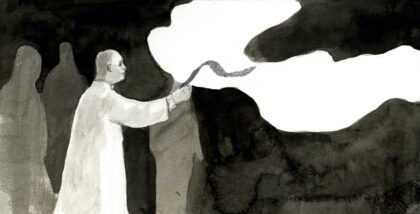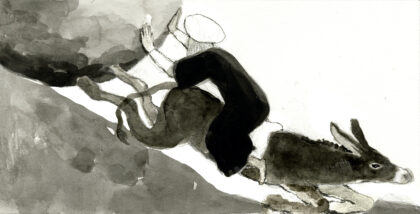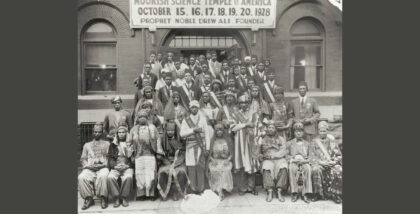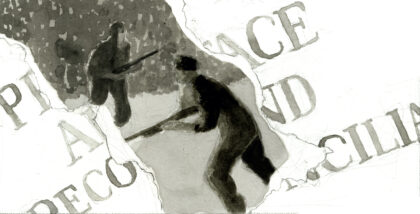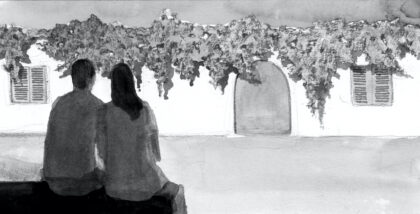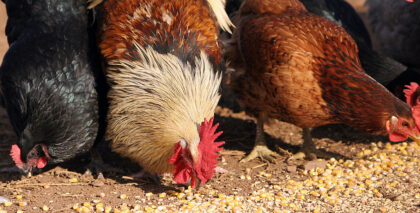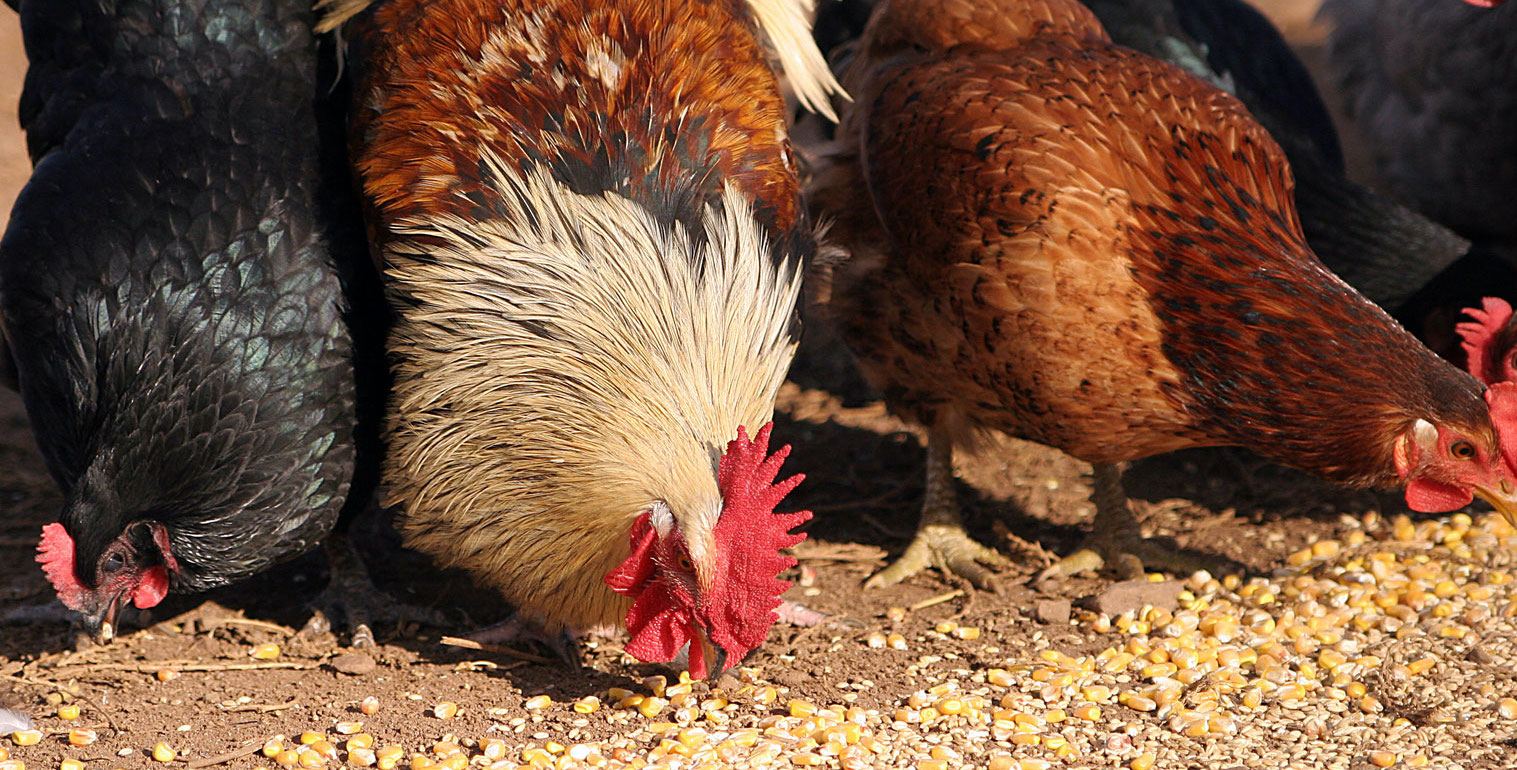 Wikimedia Commons / Fir0002/Flagstaffotos
Wikimedia Commons / Fir0002/Flagstaffotos
ADDIS ABABA – At a star-studded event on Saturday evening, three of Africa’s richest men announced their plan to save America. Aliko Dangote, Mo Ibrahim, and Strive Masiyiwa launched AmericAID, a new organization backed by the African Union and aimed at addressing the many woes of the United States of America, the declining global superpower.
Modeled on decades of US foreign policy, AmericAID has an ambitious agenda spanning nutrition and livelihoods, agricultural innovation, and human rights. The organization’s long-term priority is the country’s famine-by-obesity epidemic, which affects farm animals and humans alike. A steering committee of Africa’s top scientists is preparing to run genetic sequencing on America’s absurdly large and immobile chickens, and the continent’s leading agronomists are organizing a study tour in 2023, in which the eating habits of American children and their parents will be observed. A team of fruit anti-waxxers will also be deployed in a sensitization campaign to dispel myths and ignorance about and promote proper respect for fruits and vegetables.
In a demonstration of its “rapid response” programming capacities, AmericAID is redoubling its efforts on human rights, as ongoing political instability and violent clashes in the capital city of Washington threaten to undermine the democratic traditions of one of the world’s youngest, most inexperienced nation-states.
Blending agriculture with human rights, “Shout A Lot About Democracy” (SALAD), is a flagship program designed to engage American youth in their own idiom, and will station more than 1,000 young African volunteers across America to plant vegetable gardens while teaching Black Lives Matters activists about the American justice system. With little or no policy or legal expertise—but plenty of passion—the youth volunteers will train communities on grassroots mowing and organizing, develop manuals on how to manage tension-filled meetings, and roll out workshops to help pastors of Black churches learn how to be more effective public speakers.
AmericAID will provide $400 million annually in technical assistance and an additional $100,000 in direct financial support, in the form of $150 “micro-loans” to underserved American organizations and individuals. Early-career African professionals willing to share their skills in exchange for the customary international per diem of $450/day should signal their interest to AmericAID. Housing will be covered by American families in the Rust Belt, who will be paid in gratitude, selfie exposure (many of those drawn to AmericAID programs are influencers), and Amazon vouchers. As part of an anti-corruption pledge AmericaAID has signed with the US government, the vouchers will be restricted to the purchase of books and puzzles.
In its first concrete step toward realizing these ambitious goals, Maryama Diop has been appointed as inaugural country director. At 26, the Senegalese national has twice been named to Vogue UK’s list of Fashion Icons from African Countries You Didn’t Know Existed and is seen by many as a rising star, frequently likened to Ivanka Trump. This analogy does not offend her. Though she has spent virtually no time in the United States and does not speak English, Diop is fluent in both French and Mandarin along with a smattering of Italian. Prior to taking up this role, Diop served for three years as a key aide to Angolan billionaire Isabella Dos Santos, primarily advising her on her art collection. She also founded Art!, a for-profit not-for-profit street photography initiative, in response to witnessing so many impoverished children on her daily commute in Luanda. Her hiring, said one global insider, “is a real coup.”
AmericAID will eventually employ a permanent staff of 400, most of them redeployed African Union employees. Field Crisis Coordinators, or FCCs, will be specially recruited for deployment in the corrupt, violent, or climate-affected areas of the country. A local team of American drivers and administrative assistants will be a vital part of the operation in Washington DC. They will be deeply appreciated in Christmas card messages and paid competitive rates consistent with the local wage economy.
In a lengthy interview over Waldorf salad, foie gras, and the bissap tea that Diop drinks to “keep my heart close to my people and my skin ready for cover shoots,” the ever-prepared country director spoke of bringing her passion to AmericAID. Through a translator, Diop said, “I see this as a crucial pivot, a way to shift my work from the crisis of poverty in Africa to the crisis of mental impoverishment that is afflicting the American populace. This is a malady that cannot be cured by art, so I will not work with artists. I will embrace science.”
Sources close to Ms. Diop say the modesty on display in her public comments about her new rule may prove her biggest challenge. Speaking off the record, a friend of a Facebook friend said, “Maryama works really hard. You can see it in the number of times she has been to Davos. Honestly, being in those spaces has taught her a lot. She likes to say that if you can’t solve a global problem on a private jet, then you’re either on the wrong plane, or the champagne’s not good enough. She really embodies that. No problem is too big to tackle.”
Critics are less impressed, insisting that Diop is incoherent and unqualified for such an influential post.
Local grassroots organizations have meanwhile considered raising concerns about AmericAID. Human Rights Watch and Amnesty International almost issued a joint statement on the matter, but couldn’t agree upon whose logo would appear at the top of the press release. In two separate but identical documents, each noted that “America is a declining empire with rising poverty and inequality, a collapsing health system, no living wage, substandard education, crumbling roads, power shortages, and increasingly severe weather, but its citizens continue to expect foreign entities to treat them with a modicum of respect. Ms Diop has neither the skill nor the gravitas to take on this role.”
Diop’s press officer, a Ugandan feminist enrolled at Georgetown University Law School, responded online. Tweeting from his personal account @bobidrinkswine, he issued the following un-numbered thread:

He has subsequently issued an apology. “That was done in my personal capacity, from my PERSONAL account. Did not realise I would be perceived as operating in my official capacity, even though the @americaid account issued a perfectly reasonable response which I wrote but which apparently no one read.”
In spite of these early hiccups, AmericAID backers have no second thoughts.
Speaking at the event in Addis, Ibrahim noted that his support for AmericAID is founded on his belief in the idea of America as a place of possibilities. “We do believe in America! We want it to work. I mean, who doesn’t love jazz? And donuts. Excellent, really excellent, as a food and also as a business model. Only in America could an entire restaurant chain be invented that sells a cake with a hole in it, and then separately, also sells the hole. Donuts and donut holes. You’re selling both of them?! Such determination to wring every cent of profit out of a dough ball is a uniquely American form of ingenuity.”
In an off-the-record conversation, a sacked senior counselor and advisory press officer to a senior advisor to Mr. Ibrahim’s administrative assistant, who was happy to have his title included but insisted on withholding his name, divulged that after Joe Biden’s clear but contested electoral victory, there was a heated debate about whether America still needs saving. “Plans for AmericAID were almost scuttled,” he said. “Thank God for all the selfies at the Capitol insurrection—I mean, not thank God, but—you get what I’m saying, right? Without those depictions of lawbreaking and violence, taken by the perpetrators themselves, it might have been more difficult to convince Africans that AmericAID is a vital humanitarian intervention.”
The innovative financing scheme is also due to the insurrection. As the images of a crazed mob flashed across screens around the world, African governments recognized that any successful intervention must speak the cultural language of the American people, which since time immemorial has been greed.
In pledging further resources, the Malawi foreign minister said: “We were deeply saddened by those scenes, and they pushed us to give more. We hope that in some small way, this gift of conditional development aid, provided in small doses and administered in reckless and punitive ways that are designed to undermine local knowledge, promote the self-interest of our companies, and further globalize the celebrity power of our cultural heroes, goes some way towards repaying America for what it has done to us over the years.”
Malawi’s support is purely provided on a humanitarian basis, he added.
“If any of us believed there was any chance that the US would regain its military or economic power,” he said, “we would not be investing in this initiative.”
